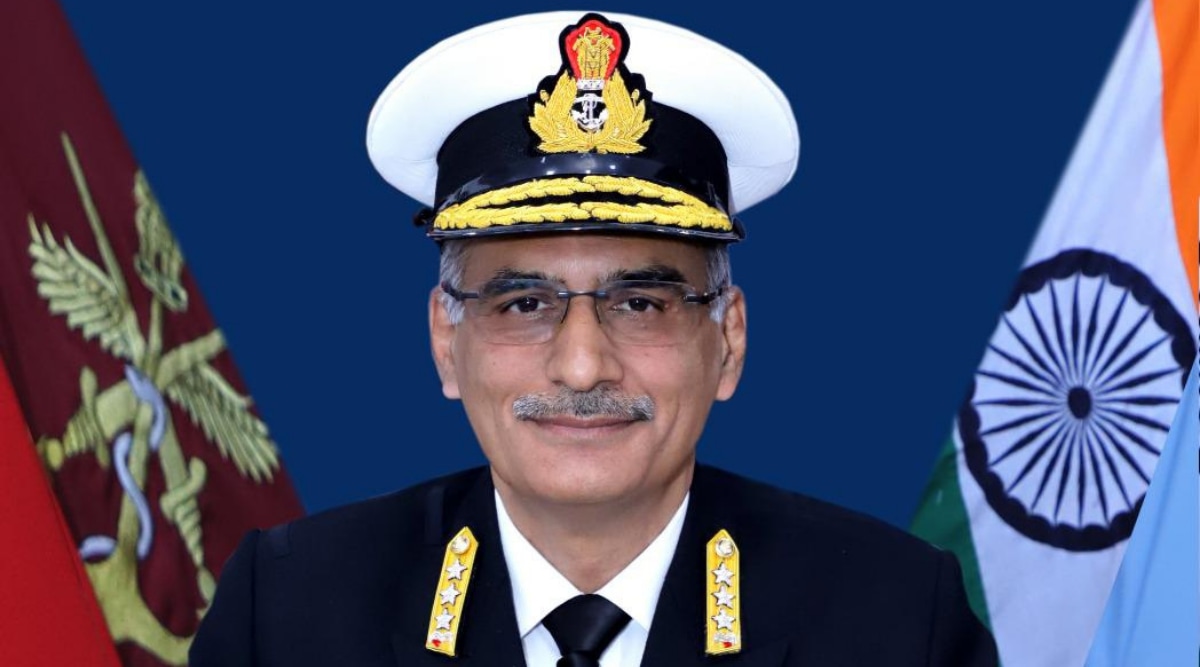 Surgeon Vice Admiral Rajat Datta
Surgeon Vice Admiral Rajat Datta The Director General of Armed Forces Medical Services (DGAFMS), Surgeon Vice Admiral Rajat Datta tells Man Aman Singh Chhina that the armed forces medical services are well geared up for any probable third wave of Covid infections. He adds that while there has been a ramping up of medical infrastructure, it is important that citizens do not to let their guard down.
What were the preparations of the AFMS leading upto the second wave of Covid?
The first wave provided us with valuable insights into infrastructural and manpower requirements needed for handling a surge in Covid cases. This experience proved valuable for the AFMS to mount an accelerated response to tackle the second wave of the pandemic.
In the lull period between the two waves, the AFMS had already augmented its infrastructural capabilities and had earmarked manpower ready for deployment at short notice in aid to civil authorities should the need arise. Hence, although the second wave caught the entire nation by surprise, the Armed Forces were in a considerable position of advantage due to investments made in enhancing patient care and treatment facilities in AFMS hospitals.
A well-planned manpower and logistics chain ensured a fast and effective response when AFMS was called upon to manage the DRDO hospitals at Ahmedabad, Delhi, Varanasi, Lucknow and Patna. These hospitals were manned by our medical and paramedical staff within a short period of time and rendered yeoman service to the civil population at the peak of pandemic.
Given the importance of preserving the health of the troops across the country in the midst of the pandemic, what were the challenges that arose to keep the rank and file healthy given the scale of the infections outside military stations?
At the first hint of the probability of a second wave, guidelines and advisories related to hospital admissions, discharge, home isolation, testing and quarantine of serving personnel were revised during January and February, 2021. These were further refined in March to included stricter quarantine norms and restriction of avoidable movement.
These enhanced measures along with a vaccination programme which progressed with alacrity have yielded rich benefits for the armed forces.
Hospital admissions of serving personnel were minimal, making beds available for the veterans, dependents and civilians who were more vulnerable to develop severe illness. While ramped up testing facilities using both molecular and rapid tests detected asymptomatic and mildly symptomatic armed forces personnel, Covid Care Centres outside the premises of hospitals served as admission and monitoring centres for these cases. This provided the twin benefit of asymptomatic cases not transmitting the infection to other personnel and keeping hospital beds available for cases of severe illness.
How has vaccination progressed in the armed forces? Has there been a shortage of vaccines as experienced by many state governments?
Based on the projection made by the armed forces to the Ministry of Health and Family Welfare in the month of December, 2020, more than adequate stocks of vaccine were made available by the Health Ministry to the AFMS for vaccinating Healthcare and Frontline Workers. The vaccination programme evolved in phases in line with the government policy.
Despite the constraints posed by operational deployment of armed forces personnel, the vaccination programme has progressed at a brisk pace wherein more than 90 per cent of Healthcare and Frontline Workers have been vaccinated with two doses of the vaccine.
The AFMS is also vaccinating dependent family members, veterans, their families and defence civilians and their families above the age of 45 years. There has been no shortage of vaccines and we are thankful to the MoHFW for this feat. I would also like to assure that there has been no wastage of any doses in the armed forces since the entire project was coordinated in a disciplined manner.
Many field hospitals have been set up by AFMS across the country to help states fight Covid. How long can military medical authorities sustain them?
The Covid hospitals set up by the DRDO at Delhi Cantt, Ahmedabad, Patna, Varanasi and Lucknow are manned by the AFMS doctors and paramedical staff. Over 4,000 patients have been treated at these hospitals and the AFMS has deployed more than 500 medical and 800 paramedical staff at these hospitals.
With the waning of the second wave, a de-escalation programme has been planned. However, we will be ready to deploy at short notice in future if the need arises. The question of sustainability of these does not arise since this is a national emergency and we are duty bound to aid the civil authority to the best of our capability. The AFMS will leave no stone unturned in this regard.
There has been literally no word on the fatalities due to Covid in the military.
While the exact data could be sensitive and have security implications, but can you give a general idea on the numbers?
That there has been literally no word on the fatalities due to Covid in the armed forces speaks of the insignificant numbers in this context. The case fatality rate is much lower than the national average and most deaths have been in persons with significant co-morbidities.
During the second wave, when hospitals across the country were reeling under oxygen shortage, there was an unseemly controversy over the transfer of the Commandant of Base Hospital Delhi Cantonment. Could that have been avoided given that the move has led to circulation of all sorts of rumours about the real reasons behind him being posted out?
The transfer of Maj Gen Vasu Vardhan, VSM, from Commandant Base Hospital, Delhi Cantt to Army Hospital (R&R), New Delhi was a routine turnover posting in the rank of Maj Gen (& equivalent) in executive cadre as approved by goverment on 08 May 2021 in organisational interest.
- The Indian Express website has been rated GREEN for its credibility and trustworthiness by Newsguard, a global service that rates news sources for their journalistic standards.

